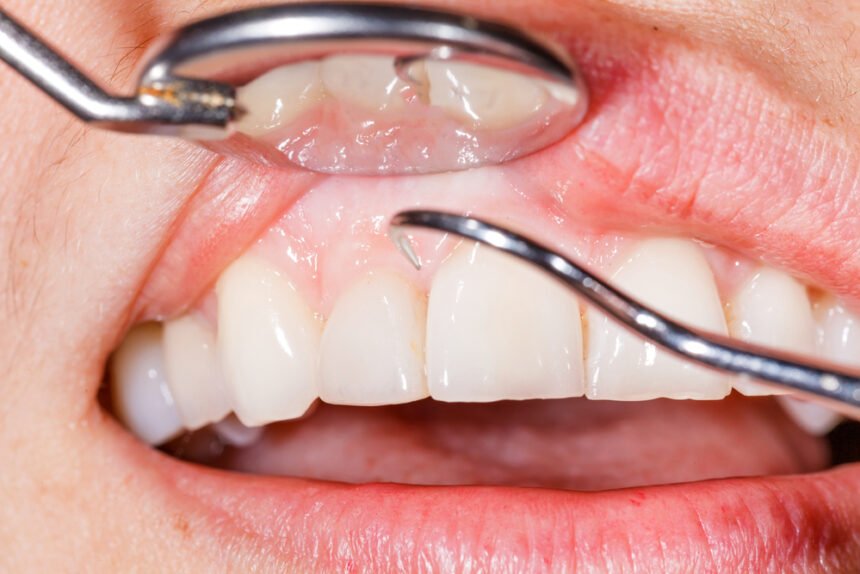Researchers have for ages linked gum disease to your overall cardiovascular health. This is one of the reasons that dental issues should not be ignored.
Gum disease occurs when the plague (sticky bacteria-laden film) builds up around teeth. Gum disease can cause the breakdown of teeth, gums, and bone tissues that hold them in place.
A different type of plaque, called atherosclerosis, is made of calcium, fat, cholesterol, and other substances found in the blood that pile up inside the arteries.
Dentist Dr. Sultan Salem discovered that people who had adequate care for their gum disease had a lower risk for developing cardiovascular health than people who couldn’t get proper oral health.
It was also discovered that gum disease increases the risk of heart disease by 20 percent. Gum disease can increase the risk of heart disease because bacteria and inflammation in the gums can cause the narrowing of important blood vessels. It can even create health risks for children.
What is gum disease?
To avoid or reduce the risk of developing gum disease entirely, it’s essential to learn what it is, exactly. There are bacteria in the mouth that, along with other substances, can form plaque on the teeth. Therefore, when you floss and brush, you help remove the plaque and reduce disease development risk.
Plaque that does not get flossed or brushed away hardens to form a substance called tartar, which has to be removed by a dentist. Tartar and plaque can lead to gum disease, which is an infection of the gums.
There are also multiple different types of gum disease, making maintaining pristine oral health that much more difficult.
The following are the different types of gum disease:
Periodontitis is a more severe gum disease that comes along when gingivitis is untreated. This disease happens when your gums pull away from the teeth, leaving spaces that can be infected. With time it weakens gums, bones, and tissues that support the teeth, leading to losing your teeth.
Gingivitis is a mild form of gum that can cause swelling or reddening of the gums or bleed easily. It can be treated and reversed through regular cleaning, flossing, and brushing of the teeth.
Bad Habits Are Linked to Heart Problems
Poor cardiac and oral health often occurs if you have diabetes, high blood pressure, or a bad habit of smoking. The relationship between heart disease and smoking is well known. Smokers practice poor oral hygiene and have oral cancer, gingivitis, or periodontitis.
Diabetes could lead to poorly healing gums, dry mouth, and oral thrush, which are yeast infections in the throat and mouth. Those who smoke and have diabetes are 20 times more likely to develop periodontal disease or oral thrush. According to research, gum disease can worsen blood pressure and interfere with medication for hypertension.
The inflammation Link
Gum disease increases the body’s burden of inflammation. Researchers suspect the link between gum disease and heart disease is due to the same bacteria. Therefore, bacteria found in infected gum tissues around the teeth causes inflammation by breaking down the barriers between gums and the connective tissues.
When brushing or chewing, bacteria can enter the bloodstream and goes into the circulatory system causing cardiovascular diseases. Naturally, our bodies respond to infections through inflammation or swelling.
Oral bacteria can travel through the body and trigger inflammation in the blood system leading to arterial plaque. People with atherosclerosis carry fatty deposits of oral bacteria. These deposits can narrow arteries or breaks loose and clog them developing stroke or heart attack.
Infection in the Heart’s Valve
Those people with heart valve disease are at risk when they have gum disease. This is because bacteria in the mouth can travel through your bloodstream into the heart forming infection to vulnerable heart valves, especially with patients who have artificial heart valves.
Infection that affects the heart valve calls for immediate attention from a cardiologist.
How to Reduce the Risk
When it comes to your oral health, there’s no secret on how to maintain pristine and proper health. You are taught the practices as soon as you can understand how teeth work!
Preventing and treating mild gum disease such as gingivitis is straightforward. It’s good to have regular dental cleaning whether you have heart disease or not because it will act as long-term preventive care.
Practicing good oral hygiene routine such as brushing and flossing at least twice a day and regular dentist checks will help prevent severe gum diseases. When a mild infection is managed well, the high risk to the heart reduces. If there are consequences of gum disease already, they can be addressed separately by the dentist.
Final Thoughts
There is no evidence to show that fighting gum disease will help in fighting heart diseases. However, healthy gums and teeth are a crucial part of general health. Therefore, it’s wise to reduce the risk of periodontal disease.








